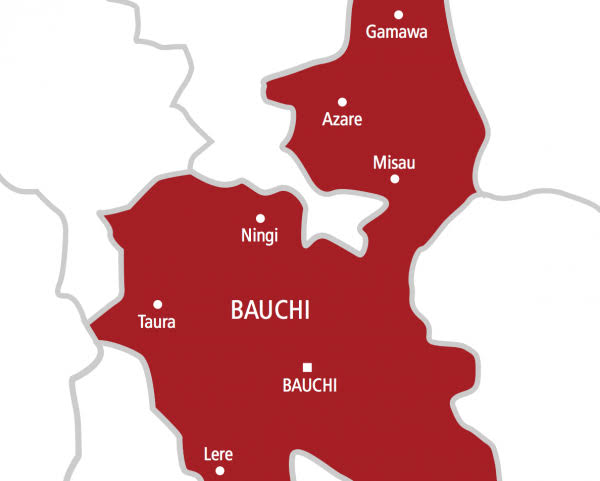Bauchi rising crime rate may be connected with poverty index

BY SAIFULLAH MAHMUD, AUGUST 10, 2023 | 03:37 PM
Over 7 out of 10, 71.9%, of people in Bauchi State are multi-dimensionally poor and live in a house made up of natural or rudimentary materials and deprived of decent living conditions.
More than 6 in 9 persons in the state, about 69.2%, are equally deprived of clean cooking fuel, resorting to dung, wood or charcoal.
The Nigerian Poverty Map compiled by the Nigerian Bureau of Statistics said 6 out of 10 Nigerians are multi-dimensionally poor; with 4 out of 10 experiencing monetary deprivation, lacking basic amenities such as access to healthcare, education, water, adequate sanitation and clean cooking fuels.
Most of the poor population in Bauchi are overwhelmed with the battle to put a plate of food on the table at the expense of child education, good shelter and parenting.
Seven in every nine children in the state, about 77.6% experience deprivation in child engagement; i.e, deprived of engagement by a household member older than 15 years in at least four of the following activities: reading books; telling stories; singing of songs; be taken outside; play with; name/count or draw within a month.
Many of them are seen on the streets and market places roaming about. According to UNESCO, about 1.2 million children in the state are out of school.
Consequences on population While most parents struggle to survive, these children—77% of them are left to be taught and ‘parented’ by the society.
Many of them are growing to be a nightmare to the state as they end up in drugs, robbery, kidnapping, banditry and gangsterism, among others.
There are areas in Bauchi where one cannot walk past with phones, not just in the night, but even in broad-day light, without being robbed.
In tricycles, the riders have begun to put barricade between them and their passengers, as a safety measure.
'We put this barricade to protect ourselves. There are so many instances where we get stabbed by passengers. So when someone tries to stab us, he would now have to face us but not from behind,' a tricycle rider told YEN in an interview.
Given the rate of the incidents of insecurity in the state, Sen. Bala Mohammed Abdulkadir, the governor, had to charge the public to rise up and defend themselves.
'Rise up, take up arms and defend yourselves. You are known to be men; you should not allow these bad elements subdue you. Defend your land and liberate yourselves,' Gov. Bala said.
Most perpetrators of crime, when arrested, attribute their deeds to poverty.
According to NBS, of the about 7 million population in Bauchi, 4,962,800 are poor. At least 1, 778, 000 are from Bauchi, 2, 464, 000 from central while about N1, 302, 000 are from the south.
Out of school children, coupled with idleness and lack of engagement of young people, only further nurture criminals and insecurity in the state.
Mustapha Baba Azare, in his published letter to the state government, depicted the ugly trend in the security of the state.
'Dear governor, I wish to bring to your notice the alarming insecurity that has begun hitting some local government areas of the state and striking fear into the masses which demands urgent attention of your administration before it takes a turn for the worse,' he wrote.
Solution
- Provision of security to farmers who are attacked and stopped from farming. This is important because that may address the problem of food insecurity in the state.
- Training youths on skill acquisition. Considering that most of the crimes are given to idleness of the youth, teaching them some skills will prove positive.
- Funding of SMEs
- Empowering security with adequate logistics
- Punishing crimes
- Boosting school enrollment.
- Provision of affordable healthcare services
Appeal for support
Conflict Reporting is dangerous and risky. Our reporters constantly face life-threatening challenges, sometimes surviving ambushes, kidnap attempts and attacks by the whiskers as they travel and go into communities to get authentic and firsthand information. But we dare it every day, nonetheless, in order to keep you informed of the true situation of the victims, the trends in the conflicts and ultimately help in peace building processes. But these come at huge cost to us. We are therefore appealing to you to help our cause by donating to us through any of the following means. You can also donate working tools, which are even more primary to our work. We thank you sincerely as you help our cause.
Alternatively, you can also email us on
info@yen.ng or message us
via +234 803 931 7767


